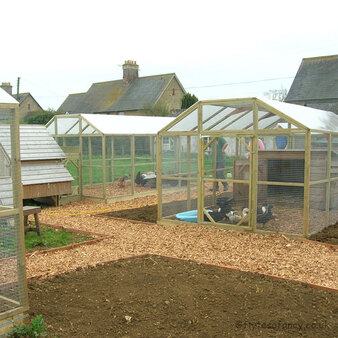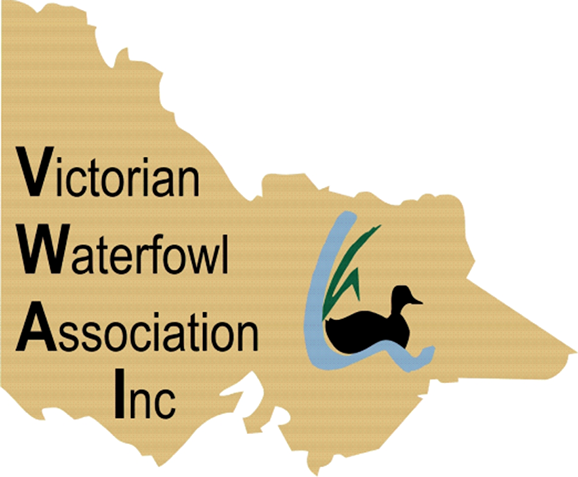Shedding And Feeding
|
What type of shed do I need for Waterfowl?
Ducks and geese do not roost and do not require special housing. All that is needed is protection from the sun and strong winds. A nice sleeping quarter or sheltered area with some warm bedding is appreciated. As a general rule of thumb, allow 1.5m2 per light breed duck. An out door run can be provided but is not essential. Large A frame pens are handy for the smaller breeds like call ducks. You can move these pens around the garden easily when necessary. Deep litter makes great bedding. Use wood shavings or rice hulls on the floor to a depth of 30cm. If the litter is kept dry, "mucking out" of the bedding should only need to be done every 3 months or so. A readily accessible water source must be provided. It needs to be deep enough for the birds to submerge their heads, this helps to clean their faces and nostrils. Ducks will preen and oil their feathers with the assistance of water. A shell pond can be provided in the outdoor section of the pen, whilst this is not essential it does help the birds keep their feathers supple and clean. Waterfowl need access to water at all times. Waterfowl do not require water to mate, but it does help especially with larger breeds of waterfowl. (e.g. Aylesbury, geese and Rouen). Pens should be built fox proof, waterfowl are more vulnerable to foxes because they sleep on the ground. Do Waterfowl need protection from the sun? Feathers do deteriorate in the sun. It happens to all breeds and all colours, even white birds. Shade from trees does help, but it is best to limit how much sun they have access to in the month leading up to the show. If some feathers are badly damaged, gently plucking them out causes the feathers to grow back. Fading appears worst in black and buff coloured birds. For those who do not wish to show their birds, the sun will affect the feathers, water does hep to keep the feathers in better condition. Waterfowl will moult their feathers in the autumn and be replaced with a new set. What is the basic feed to use? Day old to 5 weeks: Young ducks and goslings can be fed on either chicken or duck crumbs. this enables them to get the best start in life the content ensures healthy good sized young ducks. Goslings will start to graze from only a few days old, so make sure they have access to plenty of grass. 6 to 10 weeks of age: The birds should be on a duck or chicken grower feed. Scraps will be happily consumed. Goslings will be grazing very well at this stage and will benefit from extra protein boost from the grower pellets. Beyond 100 weeks of age: Young birds can graduate to regular pellets or well balanced grain mixes. Ducks and Geese require a deal of grains at this stage and will devour most kitchen scraps. If no grass is available, try some lucerne chaff. Geese are better off on a goat or horse mix instead of pellets or grains. |


